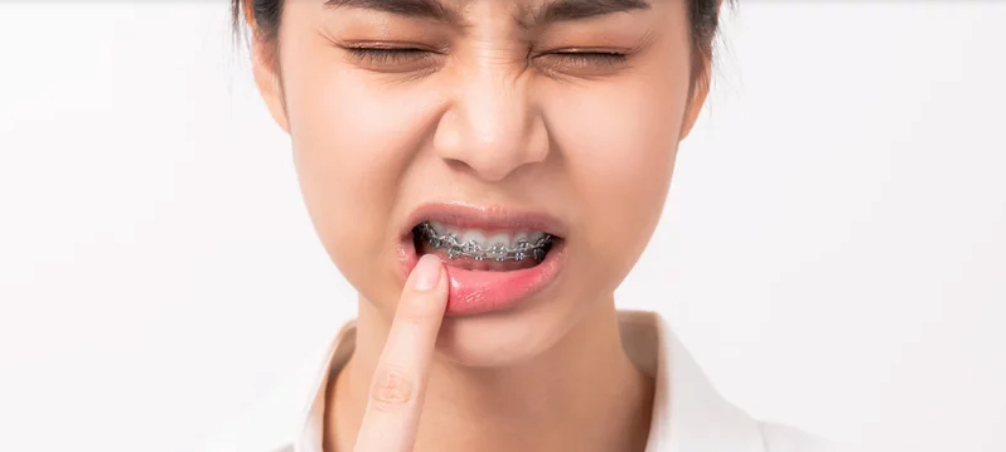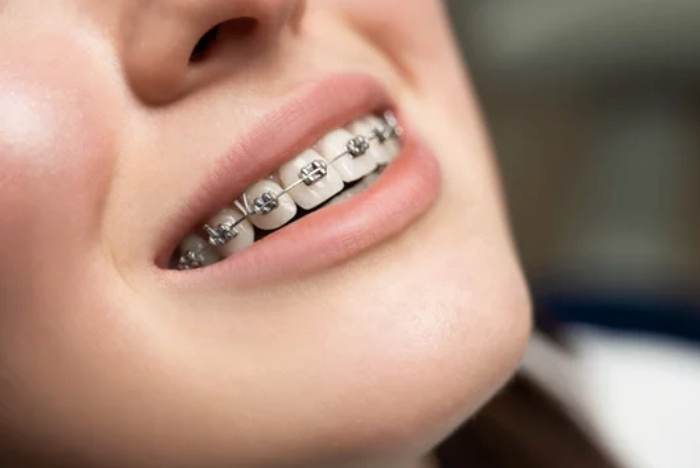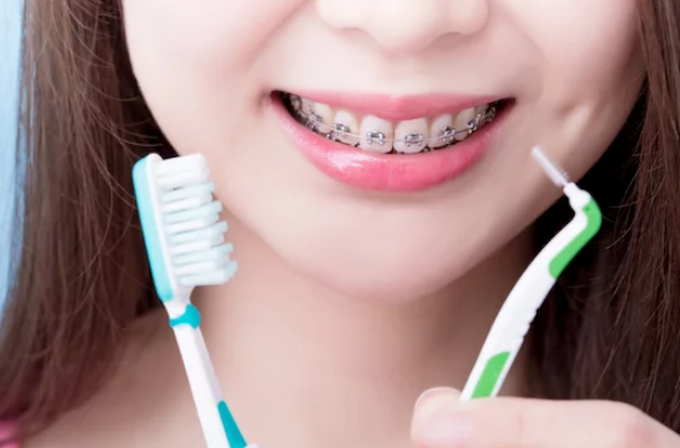
When you decide to get braces, there is certainly an adjustment period that your mouth goes through. While the braces work, you can sometimes experience side effects of the process. This leads to things like soreness or tenderness. You might also experience some swelling in your gums with braces.
The good news is that when you experience swelling, there is usually an underlying reason for it. If you can identify or treat the swelling, then you can find yourself far more comfortable. You don’t have to just be miserable. There are several things that you can do and even potential treatment options if you experience a continued issue.
What Causes Swollen Gums with Braces?
Braces can cause your gums to swell simply by the movement of the teeth. Remember that braces that pulling, pushing, and moving your teeth. Swelling of the gums could just be a normal reaction to this process. Of course, when that is the case, there are simple things you can do for relief.
It is also possible that swelling of your gums will happen because your oral hygiene regimen just isn’t quite cutting it. In some cases, there can be underlying health issues too. However, the most common reasons that your gums swell are either a reaction to the braces at work or oral hygiene that needs to be improved or adjusted.
Let’s look just a bit closer at these.

Oral Hygiene
It can be incredibly challenging to get your teeth cleaned and flossed properly when you get braces. After all, you suddenly have all of these brackets and wires and bands to work around. It’s not uncommon to struggle to get your teeth cleaned properly.
In most cases, oral hygiene that leads to swelling happens because the patient is not getting clean around the brackets or perhaps is not flossing well enough. This is why tools like a waterpik are often recommended when you have braces. These can help get some of those harder to reach spaces from braces.
It is very important that you continue to floss and make sure you floss properly. Don’t skip brushing your teeth. If oral hygiene is neglected, you could experience gingivitis or gum disease.

Moving Teeth
It’s common to experience inflammation because the braces are working. Your gums might be very sensitive to the motions that are happening. This can cause either hyperplasia or hypertrophy. Both conditions cause the gums to swell or grow in reaction to sensitivity from the braces.
The braces are doing their job and it can cause you to heave to deal with puffy and swollen gums as a result. As long as the gums aren’t red, bleeding, or really inflamed, everything is ok. There are things you can do to help with this, including avoiding certain foods when you have braces.
Tips to Help with Swollen Gums with Braces
Swollen gums can be incredibly uncomfortable but some people also feel self-conscious because it seems noticeable.
In most cases, the average person isn’t like to notice your gums are swollen. Chances are that no one is really looking that closely. They are more likely to be noticed in times when you are experiencing a lot of swelling.
However, that doesn’t mean you just have to suck it up and deal with it. There are things that you can do to try and help!
We do want to mention that if you experience discomfort for an extended time, you should speak with your dentist or orthodontist. Otherwise, try out some of these tips and see if they help.
Phenomenal Flossing
If your gums are swollen, it could just be a sign that you aren’t flossing well enough. This is understandable. Flossing with brackets and wires all across your teeth isn’t exactly easy. It takes some getting used to.
There are flossers that are designed for use with braces that make it a bit easier. It’s totally ok to use these to help you get a really great floss. Many times, inflammation is just a sign that your gums aren’t getting as clean as they need to be. Take the time to floss really well and learn where you might be missing places in the process.
You could also use a waterpik to help. This is a common recommendation. You can focus the water stream on your gums and around your brackets. This can be beneficial to getting rid of bacteria and getting a better clean in those places that are so hard to reach.
Floss is the best solution but a waterpik can be helpful. Maybe you can try a combination of both.

Avoid Certain Foods
Do you remember when you got those braces? Your orthodontist probably gave you some information. In that information, we’re guessing there was a list of foods to avoid. Chewing anything that is hard or sticky should be avoided.
Not only can these foods cause your brackets to come loose, but they can also cause your gums to swell. Your gums are more sensitive because of the movement and loosening. Eating hard foods or chewing on hard things can exacerbate that sensitivity and cause your gums to swell.
On that same note, you should also avoid things like biting your nails and chewing on objects, like the end of your pencils.
You’re better off eating softer foods with braces. Be sure to drink plenty of fluids to help rinse your mouth so food doesn’t aggravate your gums. If you want to eat an apple, be sure to cut it into bite-sized pieces. If you want to eat corn on the cob, remove it from the cob first. These little things can make a big difference.

Anti-Inflammatory
It is acceptable to take a pain medication that is also an anti-inflammatory. This could help with tenderness and potentially help to reduce swelling as well. There are several different options for anti-inflammatory medicines.
You can just use something that is over the counter and most likely experience relief. Try starting with Ibuprofen, Naproxen, or some sort of Aspirin. Each of these has anti-inflammatory benefits and they are all considered to be pain relievers as well. They could help with sensitivity and the inflammation you are experiencing in your gums.

Gum Massaging
This option might seem a little silly but it could potentially help. Massaging your gums very gently could soothe them. It also might help move around any bacteria or food that is causing the inflammation.
If you choose to massage your gums, you just want to be sure you are gentle. Use two fingers and lightly massage in small circular motions. Some people even use a very soft toothbrush instead. You could use a small toothbrush and move it in circles along the gums to see if this helps at all.

Gargle with Saltwater
Gargling with saltwater can be beneficial for a lot of things when it comes to your mouth. It’s often recommended for things like sore throats or a common cold. It can also be helpful if you’re dealing with inflammation and swelling from your braces.
The saltwater can provide relief but it also might cleanse out your gums and teeth a bit if something is causing the aggravation. It’s very simple. Just use warm or room temperature water in a glass. Mix about 1/4 or up to 1/2 of a teaspoon of salt to approximately 8 ounces of water.
Gargle in your mouth for several seconds and then spit the water out. You can repeat several times or do it a few times a day.

Final Thoughts
When your gums are swollen with braces, there are several things that you can do. Most of the time, this is related to sensitivity or simply not getting your teeth and gums cleaned well enough. Try these simple solutions to help get your gums some relief.

